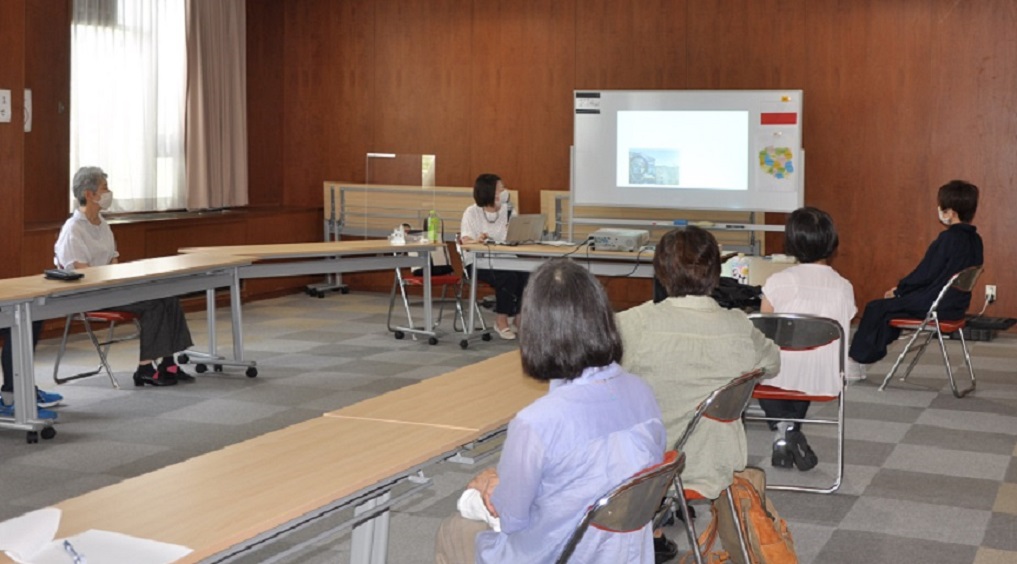
Yoshie Kitabayashi, a Japanese language instructor at ica, was invited to speak at this weeks Café Talk. Ms. Kitabayashi had recently worked in Poland as a Japanese language instructor. She shared her experience there and talked about Polish culture.



I was assigned to teach Japanese at Lodz High School in Lodz, Poland from September of last year (2019) through an overseas Japanese language teacher dispatch program. I was scheduled to teach until June, but due to the coronavirus, the school stopped in-person classes in the middle of March and continued as an online class. Consequently, I returned to Japan on a charter flight from the Polish government in early April. After returning to Japan, I continued to teach Japanese to students online until June.
The city of Lodz is Poland’s third largest city that once had a flourishing textile industry. Now that the textile industry has long since disappeared, the factories and warehouses are being converted into shopping malls and hotels with hopes of turning Lodz into a tourist city.
After arriving in Poland, I first received a 10-day survival Polish training at the National University of Lodz. Some of the younger population were able to speak English, but in general English wasn’t spoken in the city. There wasn’t much English displayed so I had trouble shopping at the supermarket. There were very few foreigners, and I rarely saw any Asians.
Lodz Daini High School is one of the oldest schools and has been teaching Japanese for quite some time. In the school there is space where Japanese kimonos and traditional items are exhibited.
Since each lesson is as short as 45 minutes, it was necessary to teach the lesson as efficiently as possible. The staff room was like a break room, with no office supplies or equipment. Teachers prepared their lessons at home.
I arrived at school before my lessons and could leave when my lessons were finished. The total amount of working hours was short. However, there was work to take home and the working conditions and pay weren’t the best.
There was a day to introduce Japanese culture to the citizens. Participants wore kimonos and displayed ikebana and tea. Poland is a pro-Japanese country, and there are many people who are interested in Japan because JICA’s Japanese language teaching headquarters is located at the the National University of Lodz.
At school, I enjoyed events such as BBQ parties and social gatherings with Israelis, and events such as Teacher’s Day, Valentine’s Day, and Paczki (donut with a sweet filling) Day with the students.
Christmas is an especially important day, much like New Year’s in Japan. I had a chance to experience it for the first time. Thin wafers called opwatic are broken in pieces and shared with others while there is a prayer for health and happiness. And then, a traditional Christmas meal of carp is eaten. There were many things to do. It was a really good opportunity to learn about Polish culture.







